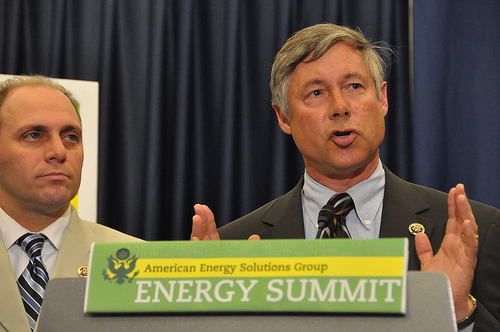Darrell Issa (R-Calif.), the new chairman of the House Committee on Oversight and Government Reform, has asked a slew of companies and industry groups for feedback on the regulations they think need to be changed. Two major lobbies, the National Association of Manufacturers (NAM) and the American Petroleum Institute (API), wasted no time in sending over their wish lists.
Both groups have staunchly opposed a number of new regulations from the Environmental Protection Agency, particularly those intended to combat climate change. The NAM list calls for weakening a number of environmental, health, and labor standards that they believe are currently “harmful” to manufacturers. Via John Walke, that includes rules on mercury, arsenic, lead, and other carcinogens, and smog standards as well as greenhouse gas limits.
Greenhouse gas regulations from the EPA are, of course, not popular among many industry types. But the smog rules are also pretty important—and have significant public health consequences. The EPA has proposed tougher limits on ozone pollution, also known as smog, but has delayed a final decision on those rules. (The agency pushed the release date back again last month.) The American Lung Association estimates that up to 186 million people in the United States currently breath unhealthy levels of smog under the weaker standard. But EPA has faced backlash from groups like NAM. Here’s what they said in their letter to Issa:
The NAM’s overriding concern with the proposal is that the high compliance costs associated with the more stringent ozone standard will hinder manufacturers’ ability to add jobs and hurt our global competitiveness. One study estimated 60 ppb would result in the loss of 7.3 million jobs by 2020 and add $1 trillion in new regulatory costs per year between 2020 and 2030.
API’s letter outlines worries that climate action might impact the ability of its members to drill. Concerns include the “use of climate change arguments to limit acreage offered for lease.” They’re also worried that providing protections for imperiled animals under the Endangered Species Act may “restrict public lands acreage” that companies can use for drilling. API’s full list is here.














